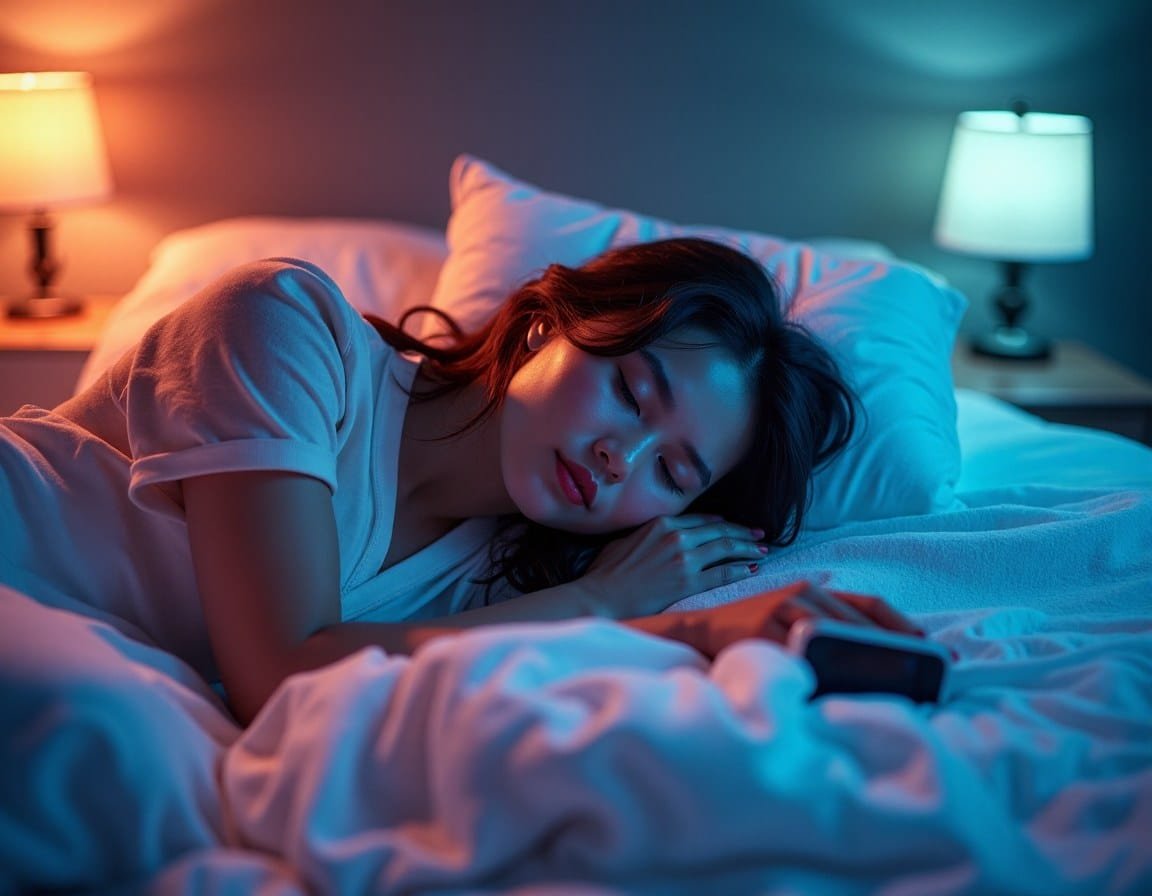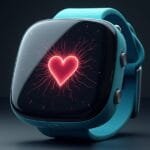The Future of Sleep and Wellness Wearables: Top 10 Devices Revolutionizing Restful Nights and Healthy Lives in 2025

Are You Getting Enough Sleep? How wearable gadgets like sleep monitoring devices can reveal the hidden truth about your restful nights and boost productivity by day. With the rise of wearable technology, sleep monitoring wearables have become increasingly popular, helping individuals track their sleep patterns, identify areas for improvement, and make data-driven decisions to enhance their overall well-being.
As we navigate our busy lives, it’s easy to overlook the importance of a good night’s sleep. But did you know that poor sleep quality can lead to decreased productivity, mood swings, and even long-term health consequences? That’s where sleep monitoring wearables come in – these innovative devices offer a convenient and non-intrusive way to monitor your sleep patterns, providing valuable insights into your restful nights.
In this article, we’ll explore the top sleep monitoring wearables on the market, highlighting their features, benefits, and potential drawbacks. Whether you’re looking to improve your sleep quality, boost your energy levels, or simply understand your body’s needs better, our guide will provide you with the information you need to make informed decisions about your sleep and wellness journey.
From smartwatches to fitness trackers, sleep monitoring wearables have become an essential tool for anyone seeking to optimize their rest and wake cycles. With new devices emerging every year, it’s essential to stay up-to-date on the latest trends and technologies in this rapidly evolving field. So, let’s dive into the world of sleep monitoring wearables and discover how these innovative gadgets can help you achieve better rest and a healthier lifestyle.
What is Sleep Monitoring Wearables?
Sleep monitoring wearables are devices designed to track and analyze your sleep patterns, providing insights into the quality and duration of your sleep. These gadgets use various sensors to monitor your movements, heart rate, and other physiological signals while you sleep.
Why Are Sleep Monitoring Wearables Important?
Understanding your sleep patterns is crucial for maintaining overall health and well-being. Sleep monitoring wearables help you identify issues such as sleep apnea, insomnia, or restless leg syndrome, allowing you to take proactive steps to improve your sleep quality.
Top 10 Sleep Monitoring Wearables in 2025
As technology advances, the market for sleep monitoring wearables continues to grow. Here are the top 10 devices revolutionizing restful nights and healthy lives in 2025:
- Apple Watch Series 8 – With advanced sleep tracking features, the Apple Watch Series 8 monitors your sleep stages, heart rate, and even detects sleep apnea.
- Fitbit Sense 2 – This device offers comprehensive sleep analysis, including sleep score, sleep stages, and personalized insights to improve your sleep quality.
- Oura Ring 3 – A sleek and stylish ring that tracks your sleep patterns, heart rate variability, and body temperature to provide a holistic view of your sleep health.
- Garmin Venu 3 – Known for its accuracy, the Garmin Venu 3 tracks your sleep stages, pulse oximetry, and provides detailed sleep reports.
- Whoop Strap 4.0 – This wearable focuses on recovery and performance, offering in-depth sleep analysis and personalized recommendations to optimize your rest.
- Withings Sleep Analyzer – A non-wearable device that slips under your mattress, tracking your sleep cycles, heart rate, and detecting sleep apnea.
- Samsung Galaxy Watch 5 – Equipped with advanced sensors, this smartwatch monitors your sleep stages, stress levels, and provides actionable insights to improve your sleep.
- Polar Ignite 3 – A fitness watch that offers detailed sleep tracking, including sleep stages, sleep score, and recovery insights.
- Beddit Sleep Monitor 4 – A thin, flexible sensor that you place under your sheet, tracking your sleep patterns, heart rate, and breathing.
- Dream 2 Headband – A unique wearable that uses EEG technology to monitor your brain activity during sleep, providing detailed insights into your sleep stages and quality.
How Do Sleep Monitoring Wearables Work?
Sleep monitoring wearables use a combination of sensors to track various physiological signals while you sleep. These sensors can include accelerometers to detect movement, optical sensors to measure heart rate, and even microphones to monitor breathing patterns.
By analyzing this data, the devices can determine your sleep stages, including light sleep, deep sleep, and REM sleep. They can also identify disruptions in your sleep, such as waking up during the night or experiencing periods of restlessness.
Benefits of Using Sleep Monitoring Wearables
There are several benefits to using sleep monitoring wearables, including:
- Improved Sleep Quality – By understanding your sleep patterns, you can make adjustments to your lifestyle and environment to improve your sleep quality.
- Increased Awareness – These devices provide valuable insights into your sleep habits, helping you become more aware of factors that may be affecting your sleep.
- Personalized Recommendations – Many sleep monitoring wearables offer personalized recommendations based on your sleep data, helping you make informed decisions to enhance your sleep health.
- Early Detection of Sleep Disorders – By monitoring your sleep patterns, these devices can help detect potential sleep disorders, allowing you to seek medical advice and treatment early.
- Enhanced Overall Well-being – Better sleep leads to improved mood, increased productivity, and overall better health.
Potential Drawbacks of Sleep Monitoring Wearables
While sleep monitoring wearables offer numerous benefits, there are also some potential drawbacks to consider:
- Accuracy – The accuracy of sleep data can vary between devices, and some wearables may not provide as precise measurements as others.
- Comfort – Wearing a device while sleeping may be uncomfortable for some individuals, potentially affecting their sleep quality.
- Data Privacy – As with any technology that collects personal data, there are concerns about data privacy and how the information is used and stored.
- Cost – High-quality sleep monitoring wearables can be expensive, which may be a barrier for some individuals.
How to Choose the Right Sleep Monitoring Wearable for You
When selecting a sleep monitoring wearable, consider the following factors:
- Features – Look for devices that offer the features you need, such as sleep stage tracking, heart rate monitoring, and personalized insights.
- Comfort – Choose a wearable that is comfortable to wear while sleeping, whether it’s a smartwatch, ring, or under-mattress sensor.
- Accuracy – Research the accuracy of the device’s sleep tracking capabilities and read reviews from other users.
- Price – Consider your budget and look for a device that offers good value for money.
- Data Privacy – Ensure that the device has robust data privacy policies and that your personal information is secure.
Future Trends in Sleep Monitoring Wearables
The future of sleep monitoring wearables looks promising, with several exciting trends on the horizon:
- Advanced Sensors – Future devices will likely incorporate more advanced sensors to provide even more accurate and detailed sleep data.
- AI and Machine Learning – Artificial intelligence and machine learning will play a significant role in analyzing sleep data and providing personalized recommendations.
- Integration with Smart Home Devices – Sleep monitoring wearables will increasingly integrate with smart home devices, allowing for a more holistic approach to sleep health.
- Non-Invasive Monitoring – Advances in technology will lead to more non-invasive sleep monitoring solutions, such as under-mattress sensors and smart pillows.
- Focus on Mental Health – Future wearables will place a greater emphasis on the connection between sleep and mental health, offering insights and recommendations to improve both.
Conclusion
As we move into 2025, sleep monitoring wearables will continue to revolutionize the way we understand and improve our sleep. With advanced features, personalized insights, and a focus on overall well-being, these devices are essential tools for anyone looking to optimize their rest and lead a healthier life.
Whether you’re a beginner or an expert in the world of wearable technology, there’s a sleep monitoring wearable out there for you. By staying informed about the latest trends and technologies, you can make the best choices for your sleep and wellness journey.
For more information on sleep monitoring wearables and other wearable gadgets, visit Wearable Gear Trends and explore our Sleep and Wellness Wearables section.
Additional Resources
Follow and subscribe for more updates on the latest in wearable technology and sleep monitoring wearables: Wearable Gear Trends | Sleep and Wellness Wearables
“`



